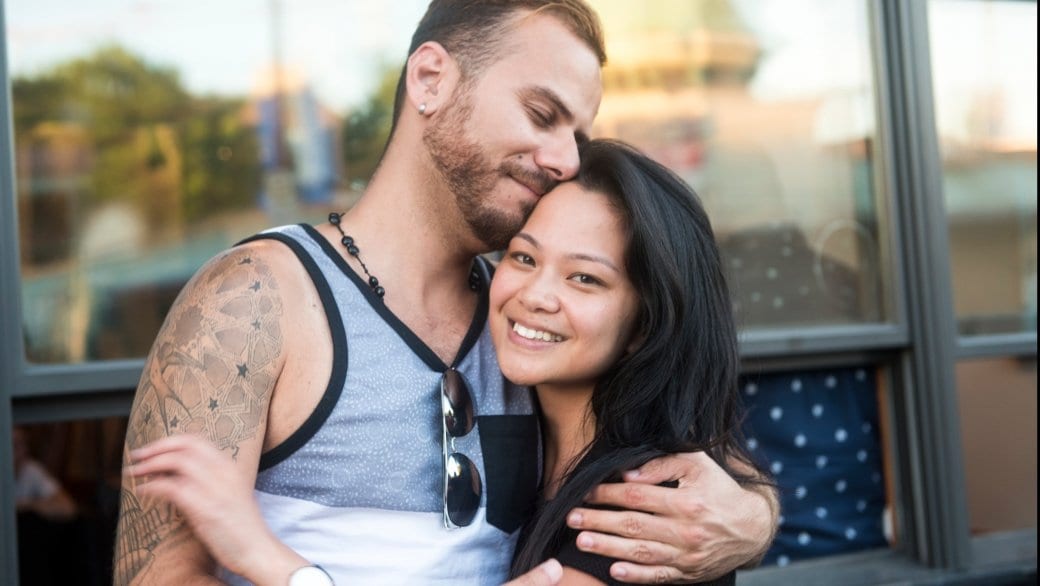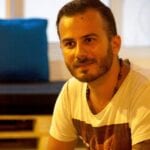Like a recap at the finale of an endearing series, artist after artist took the stage Aug 12, 2016, to dedicate their last performances at the Heartwood Café to their fans, supporters and friends.
The tearful goodbyes and extra long embraces marked another bittersweet closing night: the final curtain call for the Heartwood Café.
The café opened as a community space in 2013 and, like its predecessor Rhizome, it operated from an inclusive, queer- and trans-supportive, anti-oppressive mandate, which put it on the map for the queer and trans activist and artist community.
Heartwood’s final goodbye echoed that of Rhizome’s, which operated in the same location on East Broadway Street for seven years as a hub for social justice activism, before Lisa Moore and Vinetta Lenavat decided to sell.
By the time I arrive at Heartwood’s farewell party, nearly 100 people are sitting in corners, sharing chairs, squeezed around tables, or sitting on the floor.

“It all feels like a strange sense of déjà vu,” says Sol Diana, a spoken word artist who has worked at the café since he was in his late teens, back when it was still Rhizome. “I stood here as well, in Rhizome’s farewell night, and I did a spoken word, and now I have to do it all over again.”
For this performance, he speaks beautifully about his connection to community, and his love for his work at the Heartwood.
The café announced its closure in a heartfelt letter published on its social media accounts on June 30.
“It is with a heavy heart that we announce Heartwood’s permanent closure on Monday, August 15th,” the announcement reads. “We would like to thank Trinity United Church for investing in such a necessary space. We’d also like to thank Rhizome Café for starting the legacy we worked to continue and build.”
“Heartwood has grown in its own ways that leave us in awe of the amount of talent, resistance, and power that our communities hold,” it continues. “We have grown in laughter, full bellies, hardships, healing, vulnerability, and celebration together. With this growth comes the inevitable grieving of a space many of us call home.”

When I later catch up with Melanie Matining, the Heartwood’s community development manager, she’s rushing to Heartwood for one last time to take down the art from the walls, but she still answers her phone with her usual cheerful greeting.
I ask her if she thinks the café has accomplished its mission.
“In a lot of ways we did things that a lot of organizations weren’t doing in Vancouver,” she replies.
Given Vancouver’s lack of funding and available accessible spaces, she says, she feels good that the Heartwood accomplished its mission and created space for a lot of queer and trans people of colour and indigenous people.
“I don’t know many other places where owners made it available for folks to talk about what it means to have migrant experience, or being a queer person of colour,” she says.
“There are so very few places that I feel welcomed and accepted, finding these places is really hard,” Zehra Naqvi, one of two performers from Breaking the Fast, said on stage at the farewell party, after reading a poem about immigration, being a person of colour and culture shock.
“I’m really grateful for the people who welcomed me here, I’m really grateful for this space,” she said, taking a deep breath and wiping a tear from her cheek.

“I think Heartwood, as a restaurant serving fresh food, struggled as part of the fresh food industry,” Matining says. “We were trying to be a community space as well, and in this city, community spaces are rarely supported.”
If hadn’t been for the funding from Trinity United Church, Matining says the café “would have closed a long time ago.”
Heartwood’s closure could mean the loss of a home for many initiatives, artists and activists in the queer and trans, racialized, indigenous and youth communities. The space has become a Mecca of sorts for many of those communities to gather, organize, build upon each other’s arts, understandings and intersectionality.
“We need to make sure that the closure of a physical space doesn’t mean the closure of a community,” Matining says. “And we need to have these conversations with each other, re-imagine what these spaces look like, and make it for ourselves and our community.”
We also need to talk about what access looks like, she says, so the community members who found a home at the Heartwood continue to be included.
“A big central piece is how to have more social spaces, through talking about physical and emotional accessibility, and how to be accessible to marginalized groups,” she adds.
As our interview draws to a close, Melanie and I share a sigh, and we promise to see each other soon. I still want to talk to her about a project I’m working on, and she wants to ask me about my fundraising efforts for LGBT refugees. We wonder where we will meet from now on? We don’t yet know where, but we’re confident we’ll find someplace new to meet.
Ahmed Danny Ramadan writes a biweekly column for Daily Xtra.
Editor’s note, Aug 26, 2016: This story has been edited to remove a reference to Heartwood Café’s financial viability as the reason it closed.


 Why you can trust Xtra
Why you can trust Xtra


